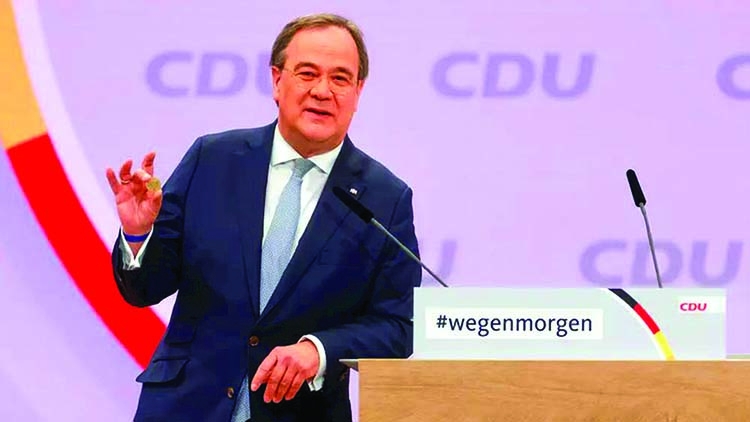Reeling German CDU candidate looks to lieutenants for help

The conservative candidate to succeed German Chancellor Angela Merkel plans to pick five close allies to champion a key policy theme each in an effort to revive his campaign ahead of the Sept. 26 election, party sources said today. Armin Laschet, leader of Merkel's Christian Democrats (CDU), lost a heated televised debate with his two main rivals yesterday, according to a snap poll, as surveys show his party falling behind the centre-left Social Democrats (SPD). Laschet has been under fire since he was caught on camera laughing during a visit last month to a town hit by devastating floods.
The CDU's slide marks a remarkable fall for the party after 16 years in office and four straight national election victories under Merkel, who plans to step down after the election. In a drive to turn around his fortunes, Laschet wants to present his five-theme plan to the CDU leadership today, party sources said, confirming a report in Die Welt newspaper. The core themes are "climate-neutral industrial country", "Digital modernisation of state and economy"., "Support for society's mainstream", "Strengthening of the economic centre" and "Internal and external security".
In the next two weeks, five senior conservative officials will then be chosen to champion these topics in the final leg of the election campaign.Together with the CDU's Bavarian sister party, the Christian Social Union (CSU), Laschet also wants to present a 100-day program in mid-September for the start of a government that he wants their conservative alliance to lead.
But the CDU's slide in the polls is hurting its chances of governing again and Laschet said in closing remarks at yesterday's debate: "I have felt headwinds now and again, as I do now." An INSA poll conducted for newspaper Bild am Sonntag showed support for the SPD rose two points from last week to 24 per cent , their highest result in four years. The conservatives slipped a point to 21 per cent, their lowest ever polled by INSA.
